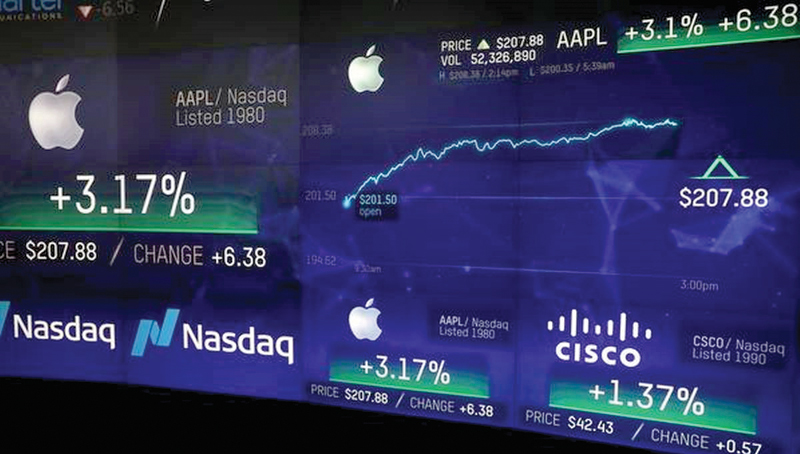

NEW YORK: More US corporate bonds are paying negative inflation-adjusted yields, as expectations that interest rates will stay near historic lows send investors seeking higher payouts in riskier assets.
The ICE BofA US corporate index for bonds maturing within five to seven years, for example, is paying negative real yields for the first time since 2013.
And bonds issued by Apple Inc in August, maturing in 10 years yielded only 1.16 per cent as of Wednesday, compared with expected inflation of 1.72 per cent per year over that time period.
Driving the moves are investors shifting into lower-rated debt expecting that the Federal Reserve will keep yields on short- and intermediate-term Treasuries at rock-bottom levels for years as it grapples with the economic fallout of the coronavirus pandemic. Bond yields move inversely to price.
That outlook was reinforced last week, when Chair Jerome Powell said the Fed would allow periods of higher inflation before raising rates.
While the returns on shorter-dated corporate debt are at all-time lows - as measured by the ICE BofA one-three year US corporate index - they still beat what investors can expect on Treasuries with similar maturities.
“When the Fed lowers its interest rates it really just kind of forces investors to take on risk,” said Eric Souza, senior portfolio manager at SVB Asset Management. “Investment grade credit and asset-backed securities is where you may start to pick up that positive net yield.”
Fed programmes, including unprecedented Treasury and corporate bond purchases, and its commitment to holding rates near zero is seen as effectively providing a backstop for shorter-dated debt. But the low yields are also making it harder for investors to generate income.
The move into corporate debt is “exactly what the Fed had planned when they were pushing investors out the maturity and credit spectrum,” said Vishal Khanduja, director of investment grade fixed-Income portfolio management and trading at Eaton Vance in Boston. “Go on, take more risk, because we are going to control the yield curve and the credit curve from here.” — Reuters
Oman Observer is now on the WhatsApp channel. Click here



